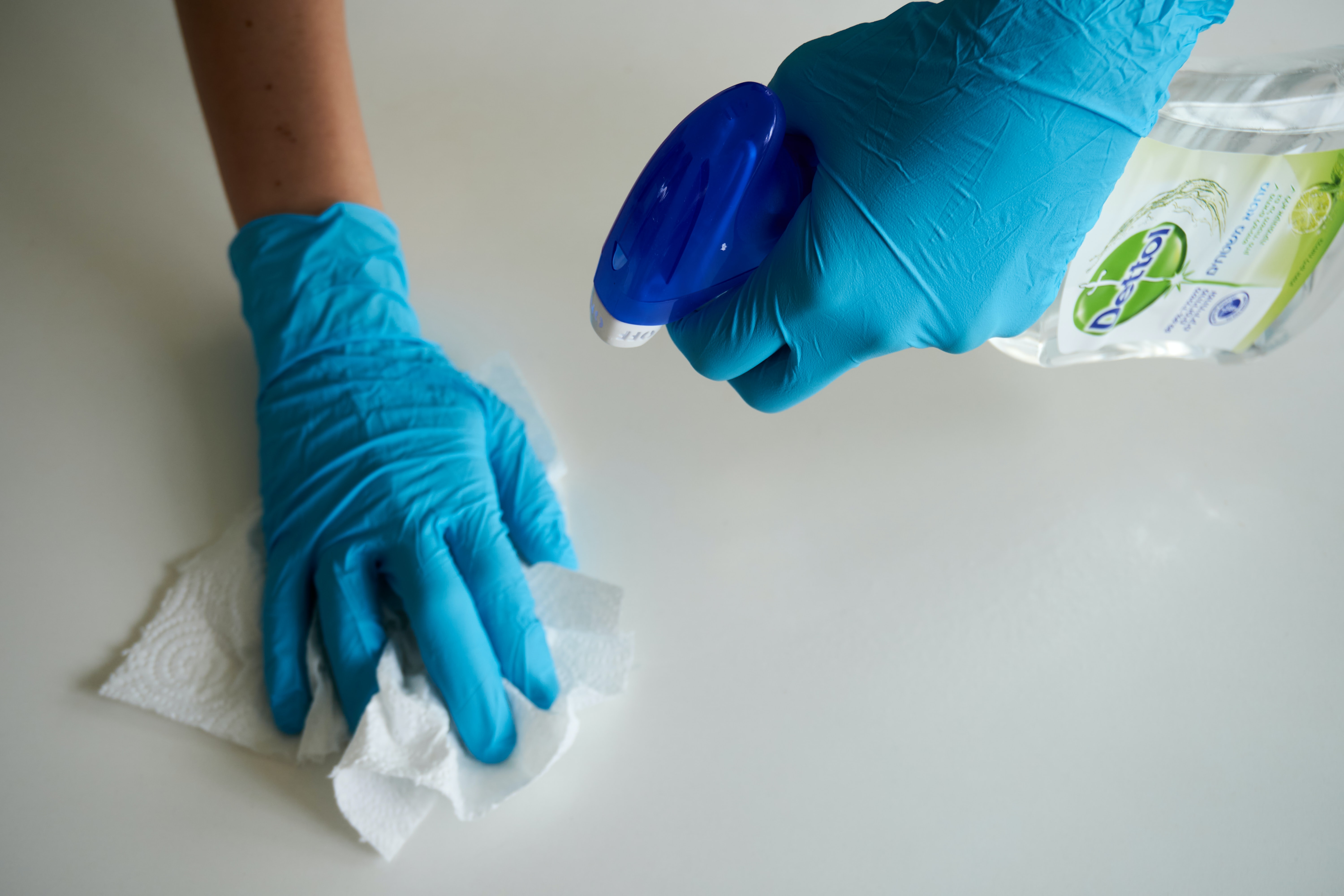Cleaning a house takes effort and time. The worst part is it doesn’t take too long for a spick and span abode to become untidy again. However, that is no excuse to not clean your house on the regular. So why is important to clean your house?
It is important to clean your house to keep it germ-free, fresh, and inviting. A dirty, disorganized house looks and feels discomforting and chaotic. It is also not the ideal place to relax or sleep in. The worst part is things get easily misplaced in a disorganized home.
Keep reading to learn more about the importance of cleaning a house, how you should clean your house, and a few important things to know before you set out to clean your space.

Quick navigation
Major Reasons Why You Should Clean Your House Regularly
Besides the fact that a clean house looks aesthetically pleasing and well put together, the health benefits of living in a clean house should perhaps be the biggest motivator.
Helps You Get Rid of Germs
With routine house cleaning, you are making sure your space is free of pathogens. As per a 2016 study, contaminated objects found in most average homes could be breeding spots for more than 340 different bacteria. Though not all bacteria are bad, a few are harmful and could make you ill. They include:
These bacteria could stay alive for several hours to days and can spread quickly. Some of the surfaces these germs typically reside on within a household are:
- Stainless steel and plastic (up to 3 days)
- Copper (24 hours)
- Cardboard (4 hours)
They could even float in the air for hours. This means even if you do not come in constant physical contact with a contaminated object, you could be affected by the germs through inhalation.
Homes located in suburban regions or houses with pets exhibit increased diversity in bacterial species population than other households. Also, houses with water leaking problems harbor more fungi than homes without reported water leakages.
A Clean House Is an Organized House
A clean house doesn’t automatically mean an organized space. But when you seriously get involved in cleaning, you cannot prevent yourself from putting things in their respective places. And thanks to the hands-on approach, you develop muscle memory or know where to look for your car keys, smartphone, office documents, tie, etc. the next time you need them. In other words, you will not be wasting precious time searching for them.
Common Dirty Spots in Any House
You need not scour every nook and corner of the house to keep your space clean and germ-free. There are certain spots in any house that are guilty of hoarding the maximum filth.
Kitchen
Areas in the house where food is prepared or stored tend to be populated with bacteria and other germs more than any other space in a typical household. The following kitchen equipment, therefore, should be cleaned frequently:
- Countertops and kitchen sink
- Cutting boards
- Refrigerator, particularly the spots that come in frequent contact with raw, unwashed food
- Coffeemaker
According to a study carried out by the NSF (National Science Foundation), dishwashing sponges house the maximum number of microorganisms, followed by kitchen sinks, kitchen countertops, and coffee reservoirs. Moreover, refrigerator and microwave handles, stove knobs, etc. are dirtier than bathroom door knobs and bathroom light switches.
Bathroom
Bathrooms are also, unsurprisingly, ideal breeding spots for germs. The areas that are the filthiest include drains, shower tub, faucets, bath towels, the floor adjoining the toilet, toothbrushes, etc. The above NSF study found out that the two dirtiest spots in a bathroom are toothbrush holders and toilet seats.
Laundry
Wet laundry could breed germs, even if the clothes are left behind for less than an hour. Freshly cleaned clothes should, therefore, be immediately transferred to the dryer after every wash. If the damp clothes remain in the washing machine for even 30 minutes, put the clothes through another wash cycle.
Living Room
According to the study mentioned, mold and yeast were commonly found on remote controls, computer keyboards, video game controllers, etc. The floor contributed to the growth and diversity of bacteria. A carpet could get dirty and dusty multiple times its actual weight. A dirty, unkempt carpet could be nastier than most city streets. Also, viruses could stay put on plastic keyboards and remotes for up to 3 days.
Personal Goods
Shoes, your gym bag, and also your headphones could be carriers of different bacteria and viruses into your house from the outside. Fecal contamination, mold, and yeast could be present on keys, cell phones, money, wallet, lunch boxes, etc. Since most of the personal items people use are made of metal or plastic, viruses can stay on them for up to 72 hours.
How to Properly Clean a House
Cleaning a house is more than just sweeping, vacuuming, or mopping the space. You must possess the right hardware and cleaning agents to get the job done to the T. But before that, make sure house cleaning becomes a habit.
Regular Cleaning
Make cleaning different areas or rooms in the house a religious routine. Do not leave the space untouched until it stinks, or the muck becomes obvious to your multiple senses. The different spots and aspects of the bathroom must be cleaned every day. A more thorough or holistic cleaning should be carried out once a week.
Use Proper Cleaning Solutions
Wipe the faucet, countertops, refrigerator surfaces, etc. with rubbing alcohol, bleach, or disinfecting wipes. Ensure that the cleaning solutions comprise at least 60% ethanol or 70% isopropanol. Those are the CDC (Centers for Disease Control and Prevention) recommendations. Wash your hands before and after handling the cleaning solutions so that the chemicals don’t get transferred to unprepared food or raw meat.
You can buy disinfectant wipes online or make your wipes if the stores have run out of stocks. To learn how to make the wipes, watch this video:
Vacuum Cleaning
Besides taking a wet, more clinical approach to cleaning, you should also regularly vacuum-clean your house, primarily to maintain the air’s quality indoors. Poor indoor quality could trigger allergies, asthma, and other disorders related to breathing. Accumulated mildew, animal dander, and dust bunnies can considerably degrade air quality in your home.
A vacuum cleaner can effectively prevent dirt and dust from amassing and causing allergy troubles. Vacuum cleaners that employ high-efficiency air filters are the most effective at sanitizing the air in your house.
Use Cleaning Tools Properly
Here are the right techniques to use the different tools you may employ for house cleaning:
- Make sure you use disposable wipes or do not use a wipe twice.
- Change the dish towels at least once a week.
- If you’re using sponges, soak them in warm water with concentrated bleach.
You can also use disinfecting wipes against pathogens residing on electronic items. However, if you want to be extra-cautious or not wreck your device, use cleaning supplies specifically designed for electronic items.
If you’d like to have a pack of disposable wipes handy at all times, the Healthy Spirit Disposable Washcloths is an excellent set of wipes.
Words of Advice and Caution
Kindly note, not all disinfectants kill all germs. Only EPA-registered chemical sterilants are capable of killing all pathogens found on hard surfaces.
Also, not all disinfectants work on all surfaces. For instance, bleach could damage stainless steel. Moreover, products with relatively high pH levels could impair fabrics and floor finishes. Cleaning solutions with neutral pH levels are much better at being non-corrosive. But their cleaning or disinfecting capabilities may not be the best.
Disinfectants come in ready-to-use, concentrated, wipe, and aerosol forms. Each comes with its unique germ-killing capabilities and claims. You should look into these aspects when buying a disinfectant for your home.
Conclusion
Most people do not clean their house at regular intervals because the very thought of the activity overwhelms them. Cleaning a house is not an uphill task, particularly if you do it every other day. And when you religiously stick to a house cleaning routine, a deeper cleaning on the weekends becomes much easier. If nothing else, it certainly won’t feel like cleaning a house that hasn’t been tidied up in months.



